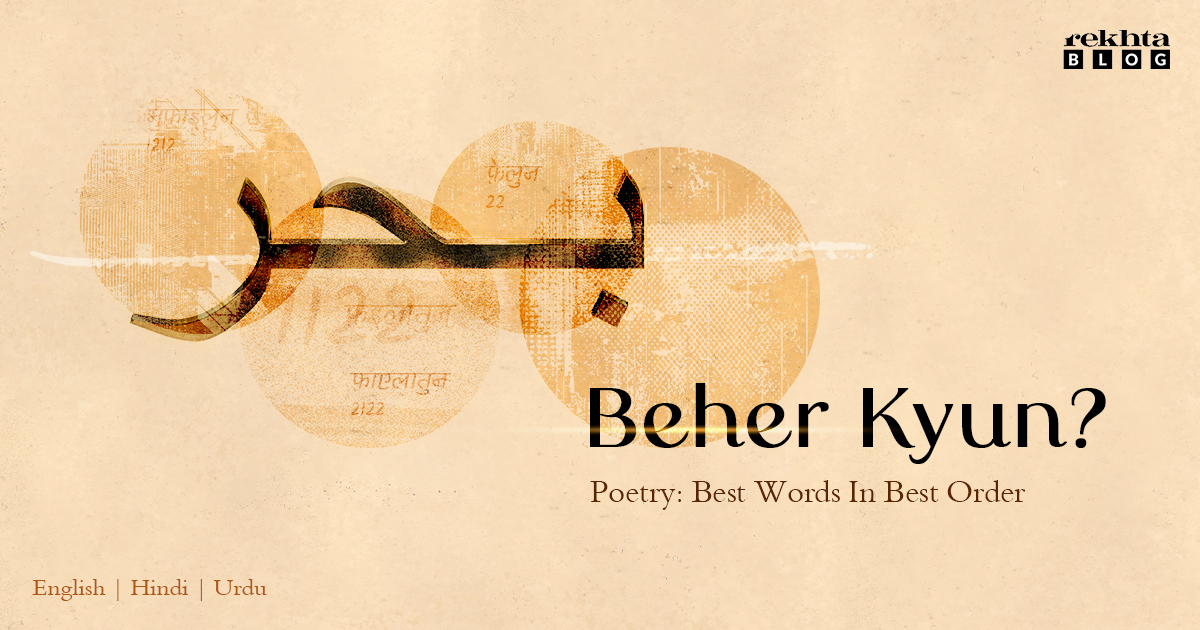
Why Beher?
Poetry is the music of the heart. Through poetry, humans express their sorrow, romance, and thoughts. What attracts us as humans towards poetry as a medium of expression?
Poetry is an elevated medium of expression, and it kindles with hearts of its readers. People quote Ashaar to express the extent of emotions with elegance. But the problem arises when poems are misread without accounting for their rhythmic structure.
Though the tradition of composing poetry considers the rhythmic structure, rhyme scheme and syllable count is extinct in most languages, Urdu Ghazal has held firm to it, and each Ghazal is mandated to be in “Behr”.
Behr is the sequence of long and short syllables in each line of a Ghazal or couplet. This Behr leads to the Ghazal being able to be recited in an elegant rhythm and be sung like traditional Ghazals.
Understanding Behr is important not just for the poets but also for the readers as it enables them to correctly read verses. Though some people propagate abandoning the tradition, as most languages have done. But most believe that poetry is a skilful expression, and if a person can’t use language to clearly express the intended musically, it isn’t appropriate to call him a poet.
Poetry cannot be conceived without Behr, as it distinguishes poetry from prose. Shamsur Rehman Farooqi, a prominent critic, explains the difference between poetry and prose:
“The most straightforward indication to distinguish poetry from prose is that poetry can’t be without rhythm.”
From the above comment, the difference between poetry and prose is clear. What are poetry and prose? Masood Hasan Rizvi, an essential personality of the Urdu language, has said something remarkable about the validity of poetry:
“The appropriateness of speech means that it should be divided into such parts which, when recited, create a beautiful continuity in the voice, and which have a delightful proportion and balance to each other.”
It is a matter of great pleasure that Rekhta has developed a tool to identify the Behr of any given Ghazal and provide accurate scansions. The tool is in Beta and might have minor technical errors, which can be reported directly.
To access the tool, Click Here.
NEWSLETTER
Enter your email address to follow this blog and receive notification of new posts.



